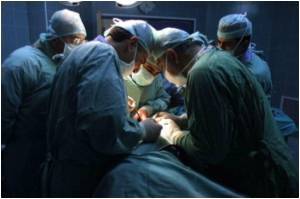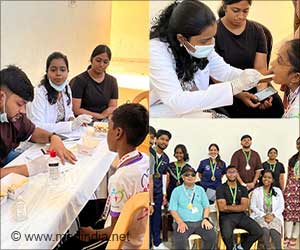
Antibody-mediated transplant rejection-a process that occurs when a transplant recipient mounts antibodies against a new organ-can contribute to declining function and ultimately loss of transplanted kidneys. To study the effects of antibody-mediated transplant rejection, Gary Hill, MD (Hôpital Européen Georges Pompidou, APHP, in Paris, France), Alexandre Loupy, MD, PhD (Hôpital Necker, APHP in Paris, France), and their colleagues examined kidney biopsies from 40 transplant patients who mounted antibodies directed against their transplanted kidney and 59 patients who did not.
The investigators found that narrowing of the arteries significantly progressed between three and 12 months after transplant in the antibody-positive patients but not in the antibody-negative patients. In those patients who did not develop antibodies, narrowing of the arteries progressed at approximately one third the rate of patients who did develop antibodies.
In the antibody-positive patients, narrowing of the arteries in the transplanted kidneys was much worse than expected based on the donor''s age and translated to approximately 28 years of "aging" in the first year after transplantation. "This accelerated arteriosclerosis can now be seen to form part of the rejection process, and it will probably be found to contribute to the ultimate decline of kidney function," said Dr. Hill.
The study''s results should spark considerable interest in the importance of arteriosclerosis following kidney transplantation. "Acceleration of arteriosclerosis was a totally unexpected finding, an important one since it broadens our thinking about what constitutes transplant rejection," said Dr. Hill.
Study co-authors (all in Paris, France) include Dominique Nochy, MD; Patrick Bruneval, MD; J. P. Duong van Huyen, MD, PhD (Hôpital Européen Georges Pompidou, APHP and Université Paris Descartes); Denis Glotz, MD, PhD; Caroline Suberbielle, MD, PhD (Hôpital Saint Louis, APHP); Julien Zuber, MD, PhD; Dany Anglicheau, MD, PhD; Christophe Legendre, MD (Université Paris Descartes and Hôpital Necker, APHP); Jean-Philippe Empana, MD (INSERM, U970, Paris Cardiovascular Research Center-PAARC); and Alexandre Loupy, MD, PhD (Université Paris Descartes; Hôpital Necker, APHP; and INSERM, U970, Paris Cardiovascular Research Center-PAARC).
Advertisement
The article entitled, "Donor-Specific Antibodies Accelerate Arteriosclerosis after Kidney Transplantation," will appear online at http://jasn.asnjournals.org/ on April 14, 2011, doi 10.1681/ASN.2010070777.
Advertisement
Founded in 1966, and with more than 12,000 members, the American Society of Nephrology (ASN) leads the fight against kidney disease by educating health professionals, sharing new knowledge, advancing research, and advocating the highest quality care for patients.
Source-Newswise










